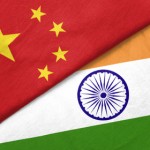Aliasger Bootwalla (AB): Will Modi bring up China’s changing stance on Kashmir with Xi Jinping?
Neelam Deo (ND): On questions relating to Jammu and Kashmir, China has been going back and forth for a long time. It quite deliberately becomes aggressive sometimes, backs off at other times. It moves between calling for a resolution on the basis of dialogue between India and Pakistan, or calling for a resolution on the basis of UN resolutions. However, announcing as it did in the meeting with Imran Khan yesterday that it will support Pakistan’s “core” interests is new. To use the word “core” in what is at most a bilateral difference between India and Pakistan is upping the ante because in the Chinese lexicon, “core interests” is used to refer to Taiwan or Tibet, meaning interests it would go to war for. And to do this just before Xi is coming to India for an informal summit with the Prime Minister is something that cannot be ignored by the government of India. The official statement reiterating our position is useful, but I certainly hope that it will be taken up more forcefully in the discussions at the summit level.
AB: Huawei is pitching to participate in India’s 5G roll-out, but it is now so controversial….
ND: Fortunately, we had not yet taken a position on the participation by Huawei in the 5G infrastructure, which is yet to be put out for tendering. We have certainly not excluded Huawei so far, but in the event of American sanctions, we may be obliged to rethink this. That is what happened with the import of oil from Iran. I think that there is more and more concern being expressed on allowing companies like Huawei into critical infrastructure in India. The European Union has issued a statement just yesterday, expressing the same concern. And of course, the United States has taken a strong position against Huawei. So we need to move cautiously.
AB: There are several points of convergence between India and China in the multilateral sphere. Do these remain relevant?
ND: I think there was convergence on some issues in the past. But now China is not just negative, it has actively worked against Indian entry into multilateral forums, such as the UN Security Council (UNSC), the Nuclear Suppliers’ Group (NSG), and the Asia Pacific Economic Cooperation (APEC) group. It is also supportive of Pakistan regarding its joining the Shanghai Cooperation Organisation (SCO) and the NSG. It will also support terrorism in the blacklisting of Pakistan by the Financial Action Task Force (FATF).
In this context, India should reconsider how far it wants to cooperate with China in multilateral organisations. If there is a natural convergence of interests, then we should take our position independent of how China acts, but we need not seek coordination. There have also been times when China has let us down in the past, as in climate negotiations in Copenhagen in 2009 or the selection of a new chairman of the IMF in 2016.
AB: Will China, the chair of the Financial Action Task Force (FATF) this year, work towards preventing Pakistan from being blacklisted or work to keep it on the grey list?
ND: It looks like it will be kept on the grey list despite not having fulfilled the obligations, except in four out of 27 requirements.
AB: Is there a counter to China’s claims and manoeuvres in the South China Sea?
ND: The aspect that may be brought up on this matter is that the four members of the Quad – the United States, Australia, Japan and India – have just held their first meeting at the foreign ministers’ level in New York. They are as yet only coordinating positions on addressing natural disasters, on exchanging information, counter-terrorism activities etc. However, it can be interpreted as a signal to China that unless it ceases being so aggressive, on so many issues and with so many countries at the same time, it will push other countries to come together to create a countervailing effort.
Neelam Deo is C0-Founder and Director, Gateway House.
Aliasger Bootwalla is Media & Outreach Associate, Gateway House.
This interview was exclusively conducted for Gateway House: Indian Council on Global Relations. You can read more exclusive content here.
© Copyright 2019 Gateway House: Indian Council on Global Relations. All rights reserved. Any unauthorized copying or reproduction is strictly prohibited.


